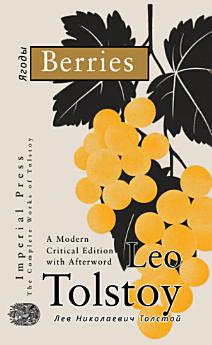Berries
Über dieses E-Book
"Berries," or "Ягоды" in Russian, was penned in 1905 and published in 1906. This realist short story unfolds during hot, windless June days in the Russian Empire, contrasting the lives of a wealthy dacha-dwelling family with those of peasant children from a nearby village. The narrative details the leisurely pursuits of the affluent, who suffer from the heat while engaging in abstract political discussions, set against the backdrop of the peasants' daily toil in fields and forests to survive. A minor incident involving the wealthy family's youngest son falling ill from unripe berries, purchased from the peasant children, serves as a focal point for this stark societal comparison. The seemingly simple act of gathering berries becomes a powerful symbolic device to highlight the profound socio-economic divide in turn-of-the-century Russia, where the same natural resource yields leisure for one class and subsistence for another.
Published during a period when Tolstoy was deeply immersed in social critique and moral philosophy, "Berries" serves as a direct commentary on the entrenched class inequalities of late 19th and early 20th-century Russia. The depiction of idle, intellectual discussions among the elite, detached from the tangible struggles of the common people, mirrors Tolstoy's own disillusionment with aristocratic society, despite his birth into it. The narrative's portrayal of the wealthy engaging in abstract political discussions while oblivious to the tangible struggles of the peasantry serves as a critique of intellectual detachment, a recurring theme in Tolstoy's later works that questioned the efficacy of theoretical reform divorced from lived experience.
This critical reader's edition presents a modern translation of the original manuscript, crafted for the modern reader with clean, contemporary language and simplified sentence structures that clarify his complex Russian phrasing and specific antiquated references. Supplementary material enriches the text with autobiographical, historical, and linguistic context, including an afterword by the translator on Tolstoy’s personal history, impact, and intellectual legacy, an index of the philosophical concepts he employs—emphasizing Existentialism and influence by Schopenhauer—a comprehensive chronological list of his published writings, and a detailed timeline of his life, highlighting the personal relationships that shaped his philosophy.











